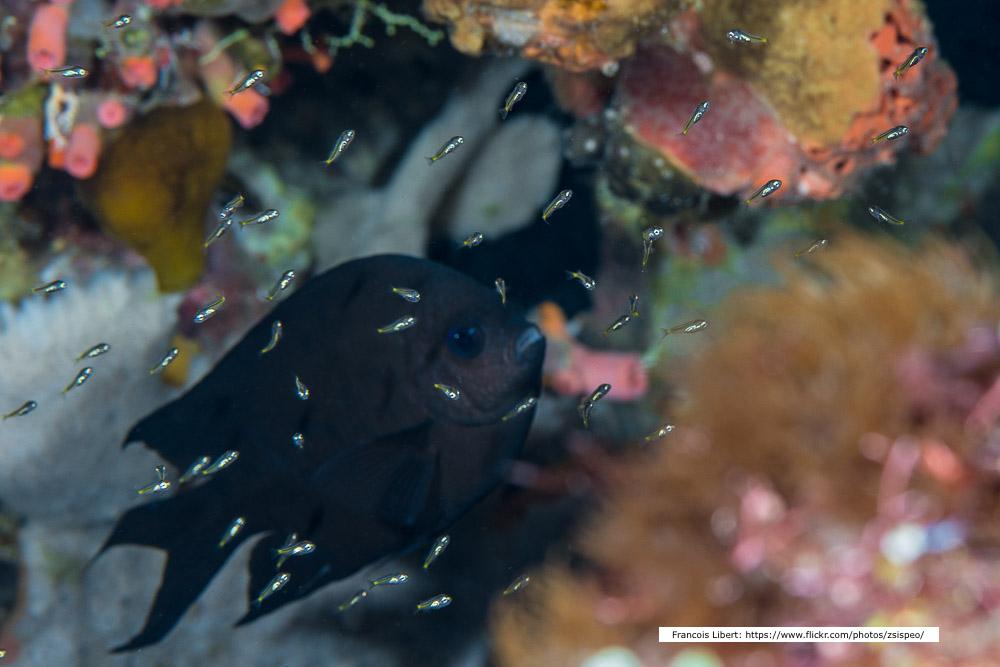
Parental provisioning of mucus in a brood caring damselfish
Supervisors:
Dr James Herbert-Read
Professor Rebecca Kilner
Dr Katie Dunkley
Project Summary
Many species provide offspring with both nutritious and non-nutritious resources through postnatal provisioning. For example, mammals provide their offspring with milk, some frogs offer unfertilised eggs to tadpoles, and ants pass growth factors, immune related proteins and microbes between colony members. Although it is rare, postnatal provisioning also occurs in some species of fish, where mucus is secreted from the parent’s body and consumed by the young during development [1]. This project will investigate the causes and consequences of postnatal provisioning in fishes, and contribute to the new and rapidly expanding research field that seeks general principles about the function of socially transferred fluids.
The spiny chromis (Acanthochromis polyacanthus) is one of the few marine fishes that shows biparental care of both eggs and larvae. Parents guard their eggs and larvae from predators, while the larvae feed off mucus on the flanks of each parent. Parents prevent non-related fry from joining their broods, suggesting that the costs of care, including mucus provisioning, outweigh any of the potential benefits of brood amalgamation [2]. Interactions between parents and fry can be readily observed in the field, and this species also breeds in aquaria. It therefore offers an ideal opportunity to analyse the form and function of mucus provisioning.
In this project we will ask:
- what is in the spiny chromis’ mucus and how is it of benefit to the offspring?
- what are the fitness costs associated with mucus provisioning to parents, and how do these costs scale with clutch size?
- how are these fitness costs divided between parents?
- do these benefits and costs covary with ecological factors such as predation risk, habitat structure, and food availability?
Overall, the project will provide new insights into the adaptive value of this unusual form of parental care, and its role in buffering offspring against wider variations in environmental conditions.
Details of work undertaken by the student
The student will first conduct fieldwork in Asia to quantify parental care and mucus provisioning in natural settings. This will involve scuba diving to film natural fry feeding behaviours, and collecting specimens to quantify mucus content. The candidate should therefore have extensive experience in scuba diving. The candidate will also rear broods of fish in the laboratory, and perform manipulative experiments to test the factors influencing the provisioning of parental care in damselfish broods. Therefore, experience of fish husbandry and breeding would also be greatly beneficial.
References
[1] Satoh, S., & Sowersby, W. (2021). Mucus provisioning behavior in teleost fishes: a novel model system for the evolution of secretory provisioning in vertebrates. Ichthyological Research, 68(1), 1-10.
[2] Jordan, L. A., Herbert-Read, J. E., & Ward, A. J. (2013). Rising costs of care make spiny chromis discerning parents. Behavioral Ecology and Sociobiology, 67(3), 449-455.
